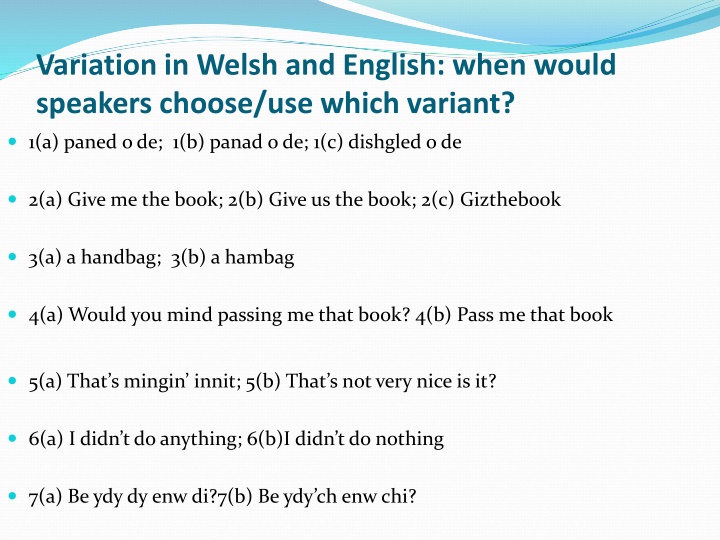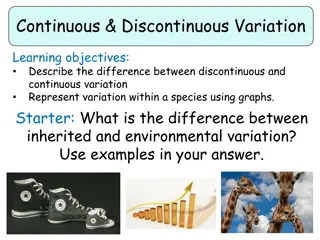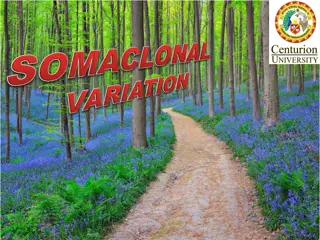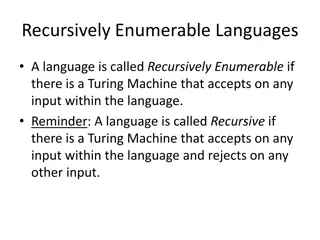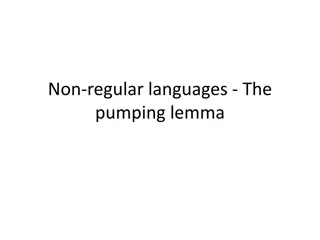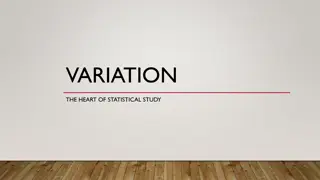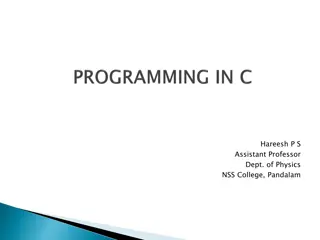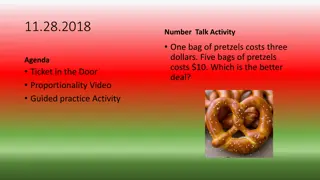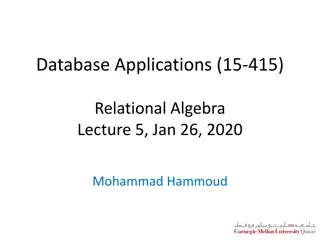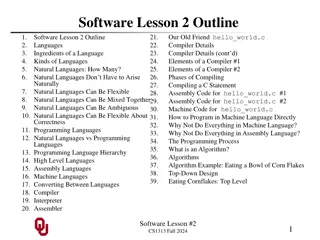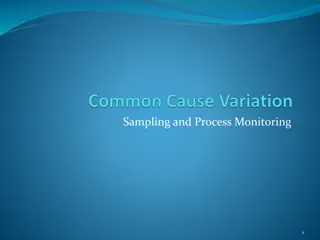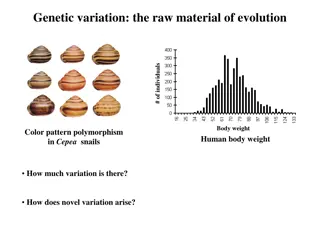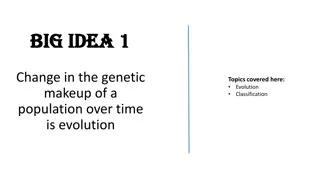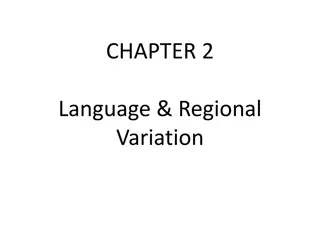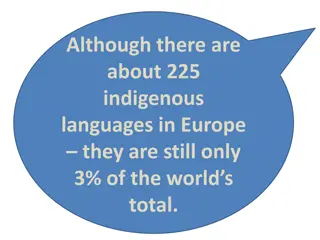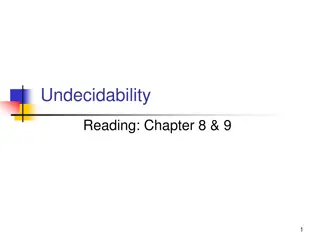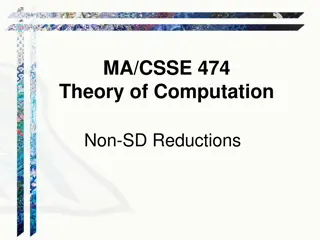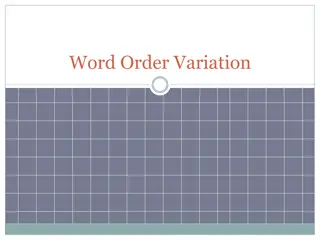Variation in Languages: Cultural Insights
Discussing the nuances of language variations in Welsh, English, and German, exploring regional, formal/informal, written/spoken differences, and the impact on communication and identity. From pronunciation to vocabulary and grammar, language choices shape how we are perceived and influence social interactions.
Download Presentation

Please find below an Image/Link to download the presentation.
The content on the website is provided AS IS for your information and personal use only. It may not be sold, licensed, or shared on other websites without obtaining consent from the author.If you encounter any issues during the download, it is possible that the publisher has removed the file from their server.
You are allowed to download the files provided on this website for personal or commercial use, subject to the condition that they are used lawfully. All files are the property of their respective owners.
The content on the website is provided AS IS for your information and personal use only. It may not be sold, licensed, or shared on other websites without obtaining consent from the author.
E N D
Presentation Transcript
Variation in Welsh and English: when would speakers choose/use which variant? 1(a) paned o de; 1(b) panad o de; 1(c) dishgled o de 2(a) Give me the book; 2(b) Give us the book; 2(c) Gizthebook 3(a) a handbag; 3(b) a hambag 4(a) Would you mind passing me that book? 4(b) Pass me that book 5(a) That s mingin innit; 5(b) That s not very nice is it? 6(a) I didn t do anything; 6(b)I didn t do nothing 7(a) Be ydy dy enw di?7(b) Be ydy ch enw chi?
Some dimensions of variation Regional Formal/Informal Written/Spoken (medium) which medium is most uniform / has least variation? Speech or writing? Relationship with other person Age
German examples of variation / deutsche Beispiele f r Variation Hamburg vs. Mannheim Ich komme am Sonnabend / Ich komme am Samstag. Ich fuhr mit dem Zuch in die Stadt / Ich fuhr mit dem Zuk in die Stadt. Der Milchkrug / die Milchkanne pl tten / b geln Ich bin begonnen / ich habe begonnen ich geh / isch geh
Variation between countries German not just spoken in Germany Das Abitur (D) /das Matura (A)- A levels Das Krankenhaus (D) / das Spital (A) - hospital Das Velo (CH) / das Fahrrad (A, D) - bike Der Lastwagen (D) / der Camion (CH) - lorry
Variation at all levels pronunciation, vocabulary, grammar Some of it noticed and stigmatised, other stuff hardly noticed, or, even if noticed, not commented upon, e.g. Tach, Zuch in N. Germany everyone from the region does it, regardless of education, formality, age, etc. On other hand, features like isch are commented upon in S. Germany (not just by outsiders but also by those who do it themselves) and speakers try to avoid them in formal situations, e.g. h-dropping in UK Why do we do that? Is it just about being understood?
Form of the message says something about us people don t just listen to the content, but to how we say (write) something so we make choices in order to project a certain image Can t always avoid stigmatised features part of identity; peer pressure all our friends do it.
Jugendsprache youth language Rather a broad concept (how homogeneous is the group young people ?) but justified as there are some common trends we can identify Examples What processes are at work? Motivations?
Beispiele (but we have to remember that Jugendsprache changes quickly) Ein Brett (n.) = eine attraktive Person alken = viel trinken Ein Loser (m.) = ein Verlierer,Versager Die Dinos (pl.) = die Alten (Eltern, usw.) Ein Eisbeutel (m.) = ein gef hlskalter Mensch verludert = attraktiv h mmern = hart arbeiten durchsumpfen = eine Nachtdurchfeiern Morgen geh ich Kino = morgen gehe ich ins Kino Alder
How and why are these forms created? New words (neologisms): alken Borrowings (from English but also from what is known as Kiezdeutsch contact variety used by young people who are bilingual in German and Turkish) Word acquire new, but related meanings: Eisbeutel Meanings are totally reversed: wicked or bare in English, verludert in German Meanings are expanded: h mmern is one form of work, now applied to all forms of work Abk rzungen abbreviations: Dinos
Identittszeichen to show who belongs to in-group (they know the words) and who doesn t one reason why meanings change so often - Abgrenzung Protest againstwhat? Originalit t ausdr cken / wanting to beoriginal, innovative Der Spiel- und Innovationsaspekt desire to be playful Anyotherreasons?
Bcher Duden (2009) Das neue W rterbuch der Szenesprachen. Dudenverlag. Ehmann, Hermann (2009) Endgeil. Das vollkorrekte Lexikon der Jugendsprache. Beck. Pons (2014) W rterbuch der Jugendsprache: Das Original. Pons.
